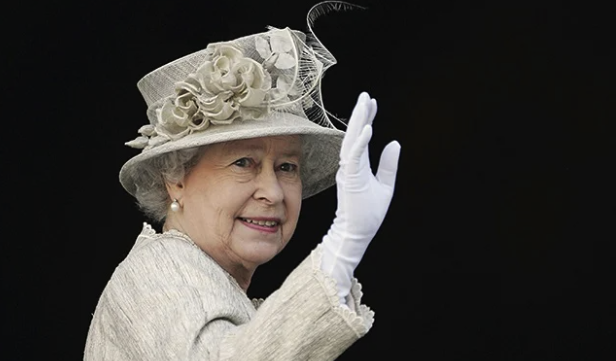I was, aptly enough, on the Elizabeth Line when the news began to filter through. People started to nudge one another and share phone screens, as they might once have gathered round the television sets in the window of Dixons or the kiosk of an evening newspaper seller. Young City workers and middle-aged Indian ladies and a raucous but good-natured group of cricket fans who’d had a disappointing day at the Oval all began to share their reactions and discuss the implications. It sounds like a dreadful cliché but I saw Britons from all kinds of backgrounds who were deeply affected. Personally I found myself surprisingly upset, without fully understanding why.
At these kind of moments, the arguments for monarchy, which can have an abstract feel, come into their own. Most of us on that train had probably never even seen Elizabeth II in the flesh, much less met her — although you never know, given the tens of thousands of public engagements she undertook — and yet the fact of her dying clearly meant something to us all. Over the next few days and weeks, all across the country, people will be feeling a genuine sense of loss and sadness that would not arise from, say, the death of a Prime Minister or another public figure.
The difference is that the crown represents not simply the state or the government or a party, but that mysterious and vital thing, the nation. The throne embodies permanence, solidity and continuity, and as such is a kind of focal point for the profound bond of people, land, custom and history. The Windsors are sometimes regarded as a newish family, especially in British terms, but they are direct descendants of Henry VII, who was himself directly descended from William the Conqueror. When the new King is crowned, the service will incorporate elements that trace their origin to Anglo-Saxon times. The magnificent ceremony will also, if not too much messed about by barbarian modernisers, hark back to Biblical notions of sacral kingship.
The promises made in the Coronation Oath — vows of service, duty, and fidelity — have great resonance and power. Even if you do not believe in the God before whom they are sworn, their value is immense. Certainly, in prosaic terms, the Oath is a kind of contract, but it is also vastly more than that. When we hear Charles speak those words, we will not be listening to a salesman explain the terms of the lifetime warranty on our new dishwasher. Instead, we will be the observers, and in some sense the guarantors, of a man binding himself to a high and transcendent realm of meaning and purpose, far above the day-to-day concerns of partisan politics. All the pomp and ritual, all the splendid uniforms and smart drill and glorious music, point beyond themselves to something else, some eternal order.











Join the discussion
Join like minded readers that support our journalism by becoming a paid subscriber
To join the discussion in the comments, become a paid subscriber.
Join like minded readers that support our journalism, read unlimited articles and enjoy other subscriber-only benefits.
Subscribe